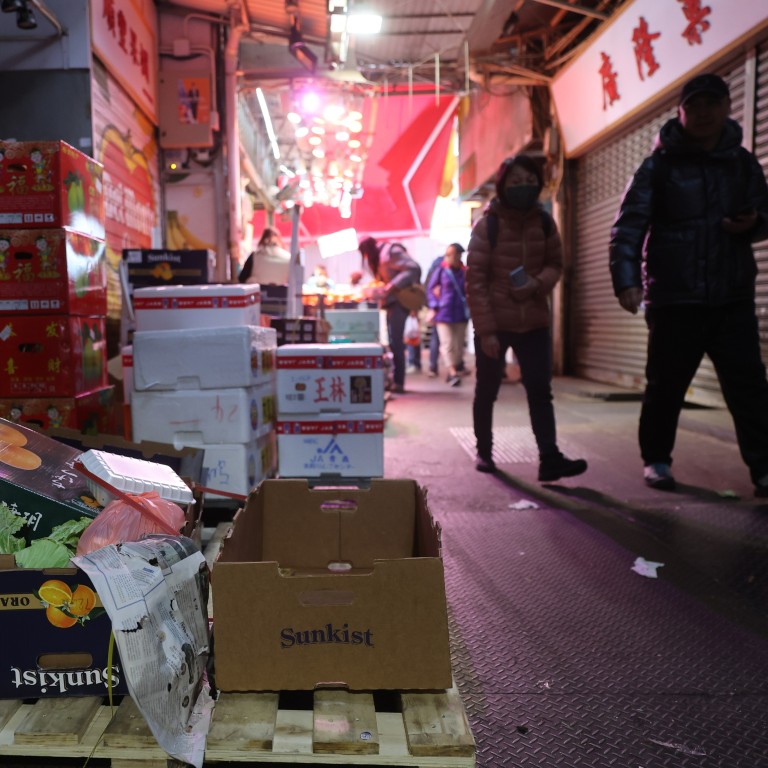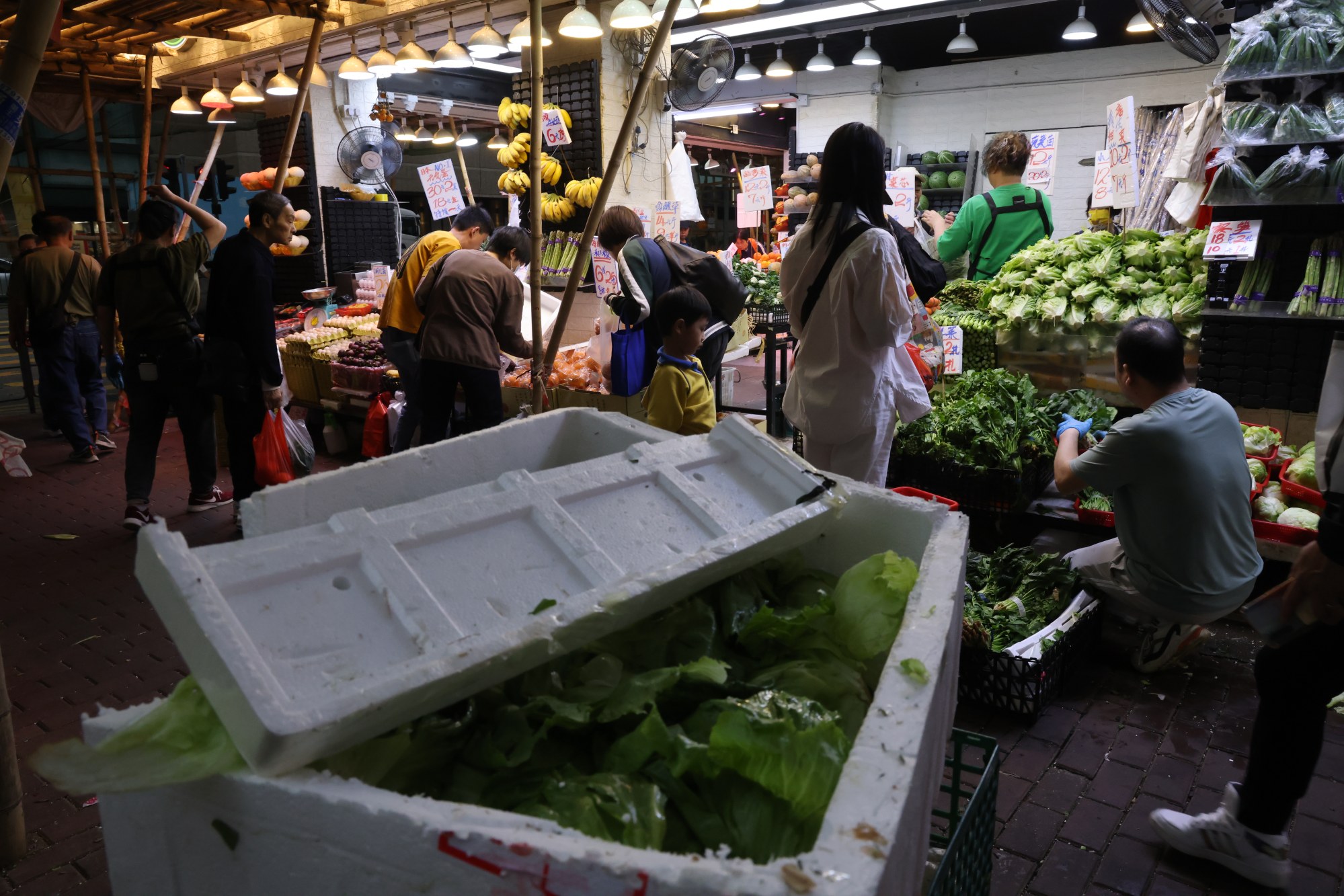
Hong Kong to propose granting hygiene inspectors power to dispose of perishable goods seized for obstructing passageways
- Environment and Ecology Bureau says proposal could help authorities cut cost of keeping goods in cold storage for merchants to take back
- Bureau also seeking to allow officers to issue penalty notices and initiate prosecutions based on images or video recordings from food and hygiene department’s cameras
Hong Kong’s environmental authorities are seeking to empower public hygiene inspectors with the right to dispose of perishable goods, such as fruits and vegetables, that have been confiscated for obstructing passageways.
The Environment and Ecology Bureau said on Wednesday the proposed move could help authorities save on costs as the goods would no longer need to be kept in cold stores for the merchants to take them back.
“This will enhance the Food and Environmental Hygiene Department’s capability to handle shopfront extension problems independently,” a spokesman said in a paper submitted to the Legislative Council.
“If the prosecution is unsubstantiated, the government will make reference to the existing arrangement for seizure of goods in the hawking-regulating legislation, to pay the claimant an amount corresponding to the value of the goods.”

The bureau also proposed enabling the department’s officers to issue penalty notices and initiate prosecutions based on images or video recordings from the department’s cameras. At present, officials can only take enforcement actions when someone is caught red-handed.
The government last October increased the penalty for “causing obstruction in a public place” to HK$6,000 (US$767), up from HK$1,500.
The highest punishment a court can impose also rose to a HK$25,000 fine, up from HK$5,000, but the maximum custodial sentence has remained the same at three months in jail.
The bureau said there had been a “noticeable improvement in shopfront extension situations”, with monthly penalty notices issued decreasing by 80 per cent from about 500 to 110.
New commissioner proposed to spearhead Hong Kong fight against climate change
The spokesman said the government would further observe the situation before reviewing the penalties “in a timely manner”.
Other proposals included allowing hygiene inspectors to enter premises up until 10pm, as opposed to the current 7pm, and increasing the penalty for water seepage, dripping from air conditioners and hoarder houses to a maximum of HK$50,000, with a daily HK$600 increment for non-compliance.
In August 2022, authorities launched a citywide clean-up campaign. An interdepartmental task force led by Deputy Chief Secretary Warner Cheuk Wing-hing sought to strengthen regular cleaning work at about 4,000 locations and eliminate about 600 black spots considered unhygienic and mismanaged.
Hong Kong officials urged to clean up act, change waste-charging scheme tactics
But a Wednesday check by the Post on the campaign’s official website found that the number of the so-called black spots had risen to 738 instead.
The latest government budget showed that the department spent HK$6.68 billion in the previous financial year on services related to environmental hygiene, slightly lower than the HK$6.697 billion allocated.
The department earmarked HK$6.9 billion for the services this financial year, 3.3 per cent more than last year.
The budget also stated the department aimed to tackle 60 per cent of black spots this year.
